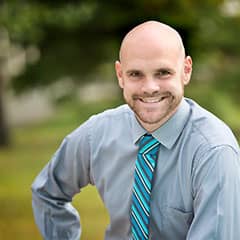Security Studies
The program consists of majors in national security and cybersecurity. Each major has an interdisciplinary curriculum that includes foundational courses, national security policy courses, Christian ethics, and relevant electives.
Programs
Student Organizations
Your undergraduate experience isn’t limited to your coursework. By participating in one or more student groups, you can be engaged in the campus and Anderson communities, learn about the international system or electoral politics, and make friendships that last a lifetime. Not only will you meet new people and do rewarding work, but you’ll also develop your knowledge, skills, experience, network, and personal brand. But the payoff of your participation is more than personal—it also affects the community as a whole. Keep that in mind as you learn about “social capital” in Introduction to Politics and American National Government.
Student organizations are open to all students. They provide you an opportunity to meet regularly with others who share your interests. Although there are many student organizations at AU, all Political Science majors should consider running for a position in the Student Government Association (SGA) or participating in one of the following organizations.
Center for Public Service (CPS)
The Center for Public Service (CPS) was established at AU in 1973 through a sizable grant from the Eli Lilly Endowment for the purpose of preparing outstanding students for careers in public service through experiential learning.
- Benefits. Fellows are connected to an off-campus mentor, interact with public service professionals at monthly meetings, and receive funding for membership in professional organizations, off-campus study, internships, travel to conferences, and other professional development opportunities.
- Membership Requirements. An overall GPA of at least 3.40 is required. Qualified sophomores and juniors must apply for membership, some of whom will be asked to interview for vacant positions.
Contact Dr. Frank (Director) for more information.
Model United Nations
The Model United Nations team travels to national and regional conferences to compete with teams from other colleges and universities by representing a specific country or organization. The simulations at these conferences give you the chance to learn how the UN works and a forum for addressing global concerns in a real-world context. You’ll prepare position papers before the conference, draft and pass resolutions during the conference, and try to persuade others to support your position. Conferences are also great networking opportunities, as you’ll meet students, professors, and potential employers from across the US. Watch what one of our majors has to say about MUN here and here.
